
George de Rue Meiklejohn was an American politician who served as the fifth lieutenant governor of Nebraska under Governor John Milton Thayer and as a member of the United States House of Representatives for Nebraska. He was the United States Assistant Secretary of War from 1897 to 1901.
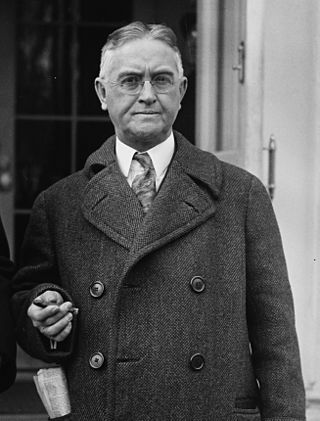
The 1924 Nebraska gubernatorial election was held on November 4, 1924, and featured former state Senator Adam McMullen, a Republican, defeating Democratic nominee, former state Representative John N. Norton, and Progressive nominee, Omaha City Commissioner Dan B. Butler.
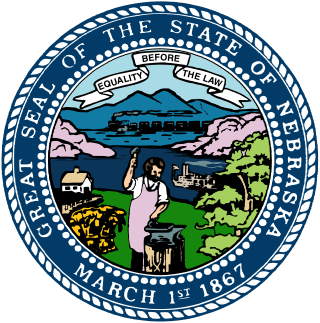
The 1914 Nebraska gubernatorial election was held on November 3, 1914.

The 1912 Nebraska gubernatorial election was held on November 5, 1912.
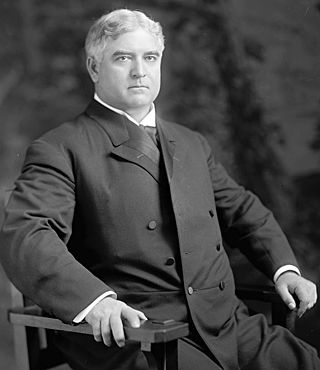
The 1908 Nebraska gubernatorial election was held on November 3, 1908.

The 1904 Nebraska gubernatorial election was held on November 8, 1904. Incumbent Republican Governor John H. Mickey won re-election to a second term, defeating Democratic and Populist fusion nominee George W. Berge with 49.67% of the vote.

The 1900 Nebraska gubernatorial election was held on November 6, 1900.

The 1898 Nebraska gubernatorial election was held on November 8, 1898. Incumbent Populist Governor Silas A. Holcomb did not stand for re-election. Populist and Democratic fusion nominee William A. Poynter defeated Republican nominee Monroe Hayward with 50.19% of the vote.

The 1886 Nebraska gubernatorial election was held on November 2, 1886.

The 1924 Nebraska lieutenant gubernatorial election was held on November 4, 1924, and featured Republican nominee George A. Williams defeating Democratic nominee P. J. Mullin as well as Progressive nominee Granville Hummer and Prohibition nominee J. F. Webster. Incumbent Nebraska Lieutenant Governor Fred G. Johnson, a Republican, chose not to seek reelection to the office of lieutenant governor in order to challenge George W. Norris for the Republican nomination for US Senate from Nebraska.

The 1918 Nebraska lieutenant gubernatorial election was held on November 5, 1918, and featured Republican nominee Pelham A. Barrows defeating Democratic nominee William B. Banning as well as Prohibition Party nominee David B. Gilbert. Incumbent Nebraska Lieutenant Governor Edgar Howard decided not to seek reelection to the office of lieutenant governor in order to run for US Senate, but he was defeated in the Democratic primaries by John H. Morehead.

The 1914 Nebraska lieutenant gubernatorial election was held on November 3, 1914, and featured Democratic nominee James Pearson defeating Republican nominee Walter V. Hoagland as well as Progressive Party nominee G. L. E. Klingbiel, Socialist Party nominee Glen H. Abel, and Prohibition Party nominee Henry F. J. Hockenberger. Incumbent Nebraska Lieutenant Governor Samuel R. McKelvie did not seek reelection.

The 1886 Nebraska lieutenant gubernatorial election was held on November 2, 1886, and featured incumbent Nebraska Lieutenant Governor Hibbard H. Shedd, a Republican, defeating Democratic nominee Charles J. Bowlby as well as Prohibition Party nominee E. B. Graham and National Union Party nominee M. K. Lewis.

The 1910 Nebraska lieutenant gubernatorial election was held on November 8, 1910, and featured incumbent Nebraska Lieutenant Governor Melville R. Hopewell, a Republican, defeating Democratic nominee Ralph A. Clark as well as Socialist Party nominee George L. Slutter and Prohibition Party nominee Samuel Lichty.

The 1890 Nebraska lieutenant gubernatorial election was held on November 4, 1890, and featured Republican nominee Thomas Jefferson Majors defeating Populist nominee William H. Dech and Democratic nominee Alex Bear as well as Prohibition Party nominee George W. Woodbey. Incumbent Nebraska Lieutenant Governor George D. Meiklejohn did not seek reelection as lieutenant governor in order to seek the Republican nomination for the US House of Representatives in Nebraska's 3rd congressional district, but he was unsuccessful.

The 1894 Nebraska lieutenant gubernatorial election was held on November 6, 1894, and featured Republican nominee Robert E. Moore defeating Populist and Democratic fusion nominee James N. Gaffin as well as Straight Democratic (anti-Populist) nominee Rodney E. Dunphy and Prohibition Party nominee Belle G. Bigelow.

The 1896 Nebraska lieutenant gubernatorial election was held on November 3, 1896, and featured Populist and Democratic fusion nominee James E. Harris defeating his major rival, Republican nominee Orlando Tefft. Other candidates who received two percent of the vote or less included Gold Democratic nominee Owen F. Biglin, Prohibition nominee Lucius O. Jones, Socialist Labor nominee Fred Herman, and National Silver nominee Oscar Kent. Incumbent Nebraska Lieutenant Governor Robert E. Moore did not seek reelection.

The 1898 Nebraska lieutenant gubernatorial election was held on November 8, 1898, and featured Populist and Democratic fusion nominee Edward A. Gilbert defeating Republican nominee George A. Murphy as well as Prohibition nominee Newell S. Lowrie and Socialist Labor nominee J. J. Kerrigan.
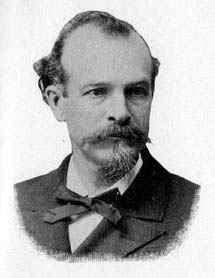
The 1900 Nebraska lieutenant gubernatorial election was held on November 6, 1900, and featured Republican nominee Ezra P. Savage defeating incumbent Nebraska Lieutenant Governor Edward A. Gilbert, the Populist and Democratic fusion nominee. Other candidates who received two percent of the vote or less included Prohibition nominee Charles R. Lawson, Midroad Populist nominee Herman G. Reiter, and Social Democratic nominee David McKibben.
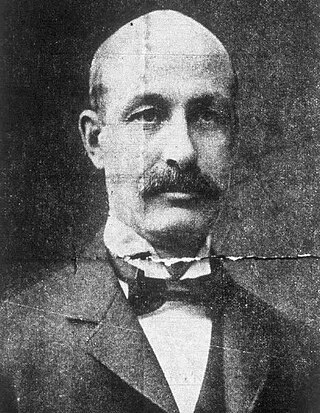
The 1902 Nebraska lieutenant gubernatorial election was held on November 4, 1902, and featured Republican nominee Edmund G. McGilton defeating Edward A. Gilbert, the Populist and Democratic fusion nominee, as well as Prohibition nominee Isaiah Lightner and Socialist nominee Andrew D. Peugh.
















